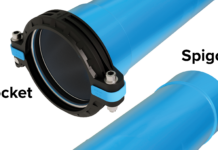 by: Nick Boliek
by: Nick Boliek
The Reshoring Initiative continues to promote, educate, and provide the tools companies need to make essential decisions in regards to reshoring and offshoring.
Reshoring continues to be an important topic for the American industry. More so now due to the leading Presidential candidates touting promises to impact the offshoring of jobs. The Reshoring Initiative, founded by Harry Moser, former president of machine tool maker GF AgieCharmilles, has continued to keep the industry informed and help guide decision makers through the decision process.
Trending Higher than Expected

Due to the high dollar and lower freight and oil cost, the Reshoring Initiative, had projected a 20% reduction. However, 2016 has already trended slightly above last year in companies that have decided to reshore in addition to foreign direct investments (FDI) from companies overseas.
FDI’s have added jobs 2:1 compared to those that have reshored. This is more due to the fact that FDI’s usually bring larger facilities, and considering transportation is the leading industry this year that is not surprising. Foreign companies, such as Mercedes, Honda, Toyota, and Hyundai continue to make strides in manufacturing on our soil.
What to Consider Before Reshoring?
Foremost, to reshore, a company must have first offshored. The Reshoring Initiative, suggests first to look at everything you are producing offshore. Whether that is a full product, or partially producing via offshore job shops and indicate the problem areas causing your company headaches. Then, one should indicate what products could benefit from a “Made in USA” label. Certain product categories have an advantage of carrying that promotion in the consumer market, as stores like Wal-Mart take a stance to carry such products.
Price is often times the key deciding factor in making a decision for almost anyone, and even more so for a company. However, price often does not reflect the total cost offshoring incurs. The Reshoring Initiative offers their Total Cost of Ownership Estimator® for companies to use to help in their decision. Supply chain managers, line mangers, and accounting representatives can receive customized calculations based on their own unique data to see the current TCO value as well as a five year forecast based on the user’s forecast of wage and currency changes.
Advantages of Reshoring
Most companies can see a reduction of cost in terms of inventory. This is both in what a company is using to produce a product, as well as what they are shipping to sell to the consumer. By having your product made here, companies are able to respond to market demands more quickly, while also cutting delivery time.
Retail companies in the US lose up to $250 billion dollars each year due to stock outs, lost orders where a customer may come in and the business does not have the product they desire, and overstocks, when a company has to dispose of excess inventory well below cost.
“That is partially because they have four month or six month lead times to receive most things,” explains Harry Moser, president of the Reshoring Initiative, “whereas if they had two to four week lead times, now they can adapt deliveries, orders, and receipts more closely to what the market demands.”
Difficulties that Remain
While wages have risen in China, they are still drastically lower than here in the United States. Even still, those seeing this as a concern are looking to the wages that are even lower currently in other southeast Asia countries, India, and eventually Africa. That issue will remain for decades to come.
One concern that not only hurts reshoring, but is true for the American manufacturing in general, is the lack of a skilled workforce. In many cases, companies that either had difficulty or failed when they brought their operations back home were unable to hire welders, machinists, tool makers, or whatever skillset they needed fast enough to meet their customer’s demands.
Understanding the Full Impact
It is more than cost alone that should weigh a company’s decision. Currently, the

Reshoring Initiative is working on a Corporate Social Responsibility Estimator, which will estimate the impact on the US economy when a company reshores.
This tool would help tell how many jobs could be generated, how much taxes will the company and their employees pay, and separately, what happens to the world environment when you take your production from a dirty environment, such as China, to a relatively clean-energy environment here in the US. The Reshoring Initiative is still looking for funding for the Responsibility Estimator.
“We hope to get the Corporate Social Responsibility Estimator tool completed,” explains Moser, “so that companies can see that by reshoring they can be more social responsible and more profitable.”
About the Reshoring Initiative
The Reshoring Initiative, founded in early 2010, takes action by helping manufacturers realize that local production, in some cases, reduces their total cost of ownership of products, parts and tooling. The Initiative also trains suppliers how to effectively meet the needs of their local customers, giving the suppliers the tools to sell against lower priced offshore competitors.
For more information, visit www.reshorenow.org


















